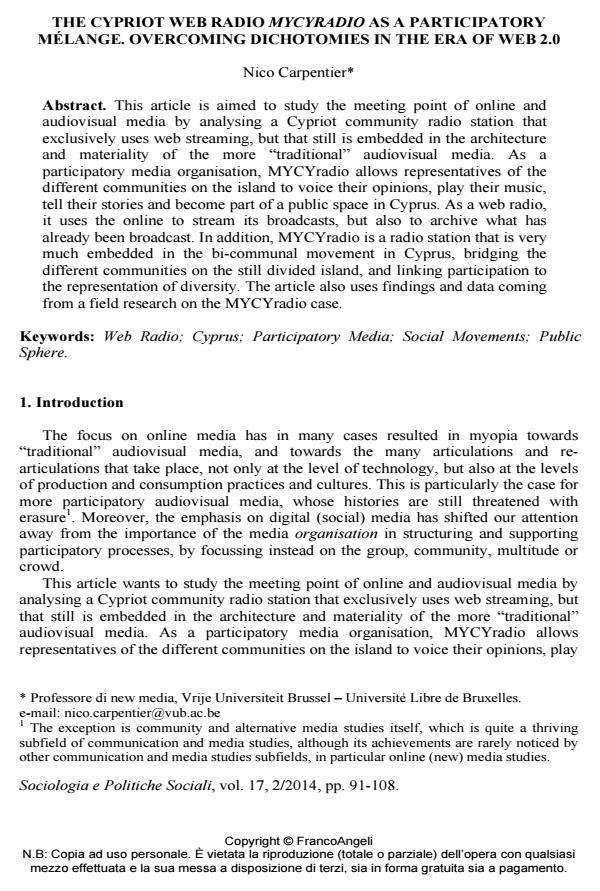The cypriot web radio mycyradio as a participatory mélange. Overcoming dichotomies in the era of Web 2.0
Titolo Rivista SOCIOLOGIA E POLITICHE SOCIALI
Autori/Curatori Nico Carpentier
Anno di pubblicazione 2014 Fascicolo 2014/2
Lingua Italiano Numero pagine 18 P. 91-108 Dimensione file 140 KB
DOI 10.3280/SP2014-002006
Il DOI è il codice a barre della proprietà intellettuale: per saperne di più
clicca qui
Qui sotto puoi vedere in anteprima la prima pagina di questo articolo.
Se questo articolo ti interessa, lo puoi acquistare (e scaricare in formato pdf) seguendo le facili indicazioni per acquistare il download credit. Acquista Download Credits per scaricare questo Articolo in formato PDF

FrancoAngeli è membro della Publishers International Linking Association, Inc (PILA), associazione indipendente e non profit per facilitare (attraverso i servizi tecnologici implementati da CrossRef.org) l’accesso degli studiosi ai contenuti digitali nelle pubblicazioni professionali e scientifiche.
This article is aimed to study the meeting point of online and audiovisual media by analysing a Cypriot community radio station that exclusively uses web streaming, but that still is embedded in the architecture and materiality of the more "traditional" audiovisual media. As a participatory media organisation, MYCYradio allows representatives of the different communities on the island to voice their opinions, play their music, tell their stories and become part of a public space in Cyprus. As a web radio, it uses the online to stream its broadcasts, but also to archive what has already been broadcast. In addition, MYCYradio is a radio station that is very much embedded in the bi-communal movement in Cyprus, bridging the different communities on the still divided island, and linking participation to the representation of diversity. The article also uses findings and data coming from a field research on the MYCYradio case.
Parole chiave:Web Radio; Cyprus; Participatory Media; Social Movements; Public Sphere
Nico Carpentier, The cypriot web radio mycyradio as a participatory mélange. Overcoming dichotomies in the era of Web 2.0 in "SOCIOLOGIA E POLITICHE SOCIALI" 2/2014, pp 91-108, DOI: 10.3280/SP2014-002006